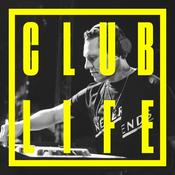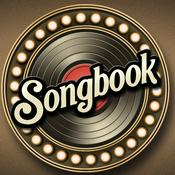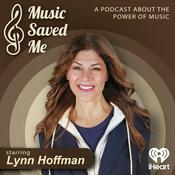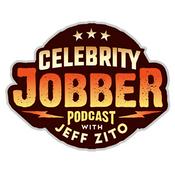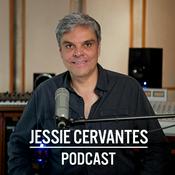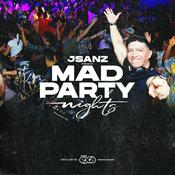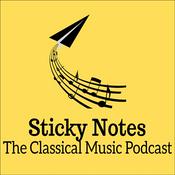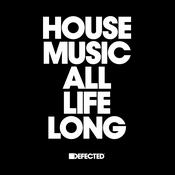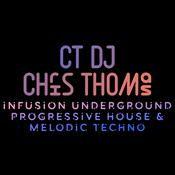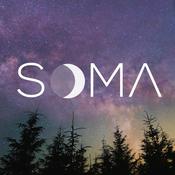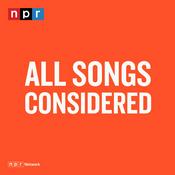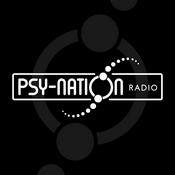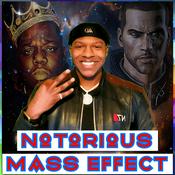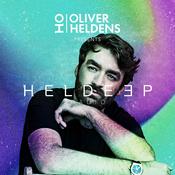160 episodios
- At the 2026 NAMM Show, we interviewed representatives from the businesses in our field of music notation software and related technology.
In this interview, we talk with Chris Swaffer, senior product manager of software at Fender, about how he thinks about Notion’s current phase in its lifecycle, what the Fender name signals to users today, and how decisions around refinement, continuity, and cross-platform consistency get made in practice. We also dig into under-the-radar improvements, accessibility as a core product principle, direct transfer between Notion and Fender Studio Pro, and how intelligent assistance can support — rather than replace — human musical judgment.
Come back next week for more conversations from the NAMM Show. And as always, if you like this podcast episode, there’s plenty more for you from Scoring Notes — be sure to follow us right in your podcast player.
More about the 2026 NAMM Show from Scoring Notes:
NAMM 2026: On the scene
NAMM 2026: Piascore’s bet on interactivity
NAMM 2026: John Barron opens the door to Dorico’s future
NAMM 2026: Sounding out the inputs with klang.io’s Sebastian Murgul
NAMM 2026: Getting into a Fender-bender with Chris Swaffer
NAMM 2026: An avid Sibelius discussion with Sam Butler and Joe Plazak
NAMM 2026: An interview with John Barron
NAMM 2026: An interview with Sebastian Murgul - At the 2026 NAMM Show, we interviewed representatives from the businesses in our field of music notation software and related technology.
In this conversation, we speak with Sebastian Murgul, co-founder and CEO of klang.io, to talk about a category that sits just adjacent to music notation — and yet increasingly intersects with it in practical, unavoidable ways: music transcription. Sebastian explains what klang.io’s tools are designed to do — and just as importantly, what they are not. We talk about why AI-based transcription has reached a point of practical usefulness now, where the hardest musical problems still lie, and how klang.io thinks about accuracy as something musicians can trust and build on, rather than a promise of perfection. We also discuss interoperability with notation software via formats like MIDI and MusicXML, real-world use cases that have surprised him, and the broader anxieties musicians understandably have around automation and AI.
Come back the next few weeks for more conversations from the NAMM Show. And as always, if you like this podcast episode, there’s plenty more for you from Scoring Notes — be sure to follow us right in your podcast player.
More about the 2026 NAMM Show from Scoring Notes:
NAMM 2026: On the scene
NAMM 2026: Piascore’s bet on interactivity
NAMM 2026: John Barron opens the door to Dorico’s future
NAMM 2026: Sounding out the inputs with klang.io’s Sebastian Murgul
NAMM 2026: Getting into a Fender-bender with Chris Swaffer
NAMM 2026: An avid Sibelius discussion with Sam Butler and Joe Plazak
NAMM 2026: An interview with John Barron - At the 2026 NAMM Show, we interviewed representatives from the businesses in our field of music notation software and related technology.
In this conversation with John Barron, international product specialist at Steinberg, John reflects on Dorico’s current development phase, how its underlying design principles continue to guide day-to-day decisions, and where users should most clearly feel progress compared to a year ago. We also talk about under-the-radar features, user feedback, interoperability with broader music-production workflows, playback and realism, and how automation can support — rather than supplant — notational intent.
Come back the next few weeks for more conversations from the NAMM Show. And as always, if you like this podcast episode, there’s plenty more for you from Scoring Notes — be sure to follow us right in your podcast player.
More about the 2026 NAMM Show from Scoring Notes:
NAMM 2026: On the scene
NAMM 2026: Piascore’s bet on interactivity
NAMM 2026: John Barron opens the door to Dorico’s future
NAMM 2026: Sounding out the inputs with klang.io’s Sebastian Murgul
NAMM 2026: Getting into a Fender-bender with Chris Swaffer
NAMM 2026: An avid Sibelius discussion with Sam Butler and Joe Plazak
NAMM 2026: An interview with Sebastian Murgul - We’re very pleased to bring you this episode, and more to come in the future, thanks to our friends at Twenty Thousand Hertz, a podcast that tells the stories behind the world’s most recognizable and interesting sounds.
People with perfect or “absolute” pitch hear every single sound as precise musical notes. Is this extraordinary talent a blessing or a curse? In this episode, our friends at Twenty Thousand Hertz dive into the neuroscience, pluses, and pitfalls of absolute pitch. Featuring neuroscientist Daniel Levitin and Grammy-winning musician Jacob Collier.
Art by Mafalda Maia.
Music featured in this episode:
Hide and Seek by Jacob Collier
Light It Up On Me by Jacob Collier
Down the Line by Jacob Collier
To Sleep by Jacob Collier
All I Need by Jacob Collier
Bakumbe by Jacob Collier
Hideaway by Jacob Collier
Colrain by Marble Run
Sky Above by Jacob Collier
Moon River by Jacob Collier
A Noite by Jacob Collier
Connect by Steven Gutheinz
Count the People by Jacob Collier
Twenty Thousand Hertz is produced out of the studios of Defacto Sound, and hosted by Dallas Taylor. - ‘Tis the season to be thankful for all of the products and services in the world of music notation software and related technology, and for the Scoring Notes audience who tunes in to hear us opine on them! We show our appreciation by bearing good tidings and do a little shopping to find some Black Friday deals and make a few recommendations for fun and productivity.
Black Friday 2025 deals for music notation software and related tech post coming on Monday, November 24
Show notes:
Scoring Notes Product Guide, with links to posts about Dorico, Sibelius, and MuseScore updates from the past year
Black Friday products and deals:
Steinberg Cyber Deals
MakeMusic discounted crossgrade to Dorico
Avid Black Friday Savings
MuseScore
Sheet Music Direct
Sheet Music Plus
Newzik
Notation Central, Notation Express, Scoring Express, MTF Fonts, NorFonts
Rogue Amoeba
PDF Expert Black Friday deals
Elgato
Audio production deals on Reddit
Adobe Creative Cloud
Setapp
CleanMyMac
Dropzone
CleanShot
Soulver
Forklift
Affinity by Canva
PopChar
TRMNL
Glance LED
Logitech B100 Wired Mouse
Más podcasts de Música
Podcasts a la moda de Música
Acerca de Scoring Notes
We love music notation software and related products and technology, so that’s what we cover here. You’ll find timely news, in-depth coverage about the field, and honest reviews about products you use every day. You’ll learn about the interesting people in our field and find out our opinions on ever-changing developments in the industry.
Sitio web del podcastEscucha Scoring Notes, Takin’ A Walk Nashville y muchos más podcasts de todo el mundo con la aplicación de radio.net
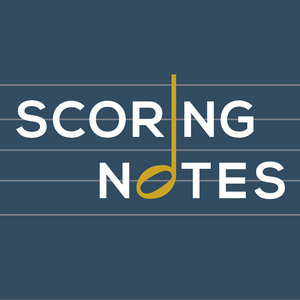
Descarga la app gratuita: radio.net
- Añadir radios y podcasts a favoritos
- Transmisión por Wi-Fi y Bluetooth
- Carplay & Android Auto compatible
- Muchas otras funciones de la app
Descarga la app gratuita: radio.net
- Añadir radios y podcasts a favoritos
- Transmisión por Wi-Fi y Bluetooth
- Carplay & Android Auto compatible
- Muchas otras funciones de la app


Scoring Notes
Escanea el código,
Descarga la app,
Escucha.
Descarga la app,
Escucha.


